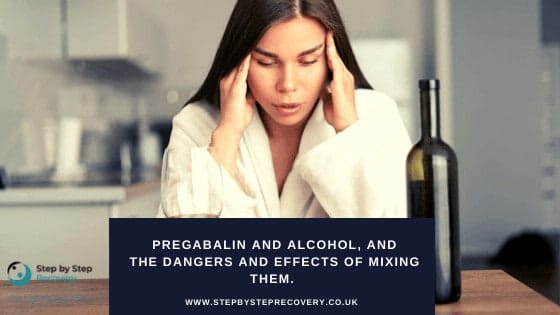Finding it difficult to get to sleep and spending hours staring at the ceiling is horrible. Broken sleep can be just as bad — not to mention feeling tired the following day and struggling to think and concentrate on work or other important daily responsibilities. At some point, almost everyone has suffered from disturbed sleep or insomnia and will turn to sleeping tablets to help reset their sleeping schedules.
Occasional use of sleeping medication is unlikely to cause any long-term effects, but it can be easy to slip from occasional to regular use. If you are concerned that you are suffering from long-term side effects of sleeping pills or withdrawal symptoms, read on to find out the main signs to be aware of and when you should consider seeking help.
Long-Term Side Effects of Sleeping Pills
Long-term side effects and withdrawal symptoms are likely to be more severe if you have used sleeping pills frequently for months or years. However, even after just a couple of weeks, you may start to experience negative side effects, although these will normally be relatively mild.
Common sleeping pill withdrawal symptoms and side effects include:
- Restlessness
- Anxiety and depression
- Sweating and shivering
- Dry mouth
- Tremors
- Constipation and diarrhoea
- Dizziness and balance problems
- Headaches
- Poor concentration and memory loss.
In addition to withdrawal symptoms, frequent use may cause sleeping pill addiction, which may not be apparent until you try to stop taking the pills.
Seven Signs of Sleeping Pill Addiction
It is a common misconception that over-the-counter sleeping pills you can buy without a prescription can’t be that addictive. But although certain types of sleeping pills may be less physically addictive than others, this does not mean they do not cause psychological addiction.
Here are seven signs you may be addicted to prescription sleep medications:
- You have gradually increased your dose and take a tablet every night.
- When you try to stop taking them, you suffer from withdrawal symptoms.
- You shop around to buy tablets from multiple chemists, buy them online or report that you have lost prescriptions to get additional pills.
- You take sleeping pills for recreational purposes and resist falling asleep to feel their effects.
- You Ignore negative consequences like missing work or forgetting to do something important.
- You feel anxious when you run out or are close to running out of sleeping pills.
- You stop taking part in activities or social events.
If these signs of addiction sound familiar, they apply — just as they would if you were addicted to prescription medicine, alcohol or heroin.
Can You Overdose on Sleeping Pills?
An overdose of sleeping pills due to abuse and addiction is unlikely to result in death and most symptoms of an overdose will be mild. But sleeping pills and alcohol addiction often go hand in hand. And when you mix sleeping pills with alcohol or other prescription medication or illicit drugs, the risk of a fatal overdose increases.
Signs of a sleeping pill overdose include:
- Respiratory depression, indicated by fast and shallow breathing
- Slurred speech
- Fainting or feeling dizzy
- Vomiting
- Blue tinge to lips and fingers
- Slow pulse.
In most cases, prompt treatment will prevent any long-term complications or death, but there are serious risks associated with a sleeping pill overdose.
Sleeping pill overdose complications include:
- Brain damage
- Long-term memory problems
- Facial paralysis
- Long-term psychological disorders.
If you are concerned about how many sleeping pills you have taken or notice symptoms of a sleeping pill overdose in yourself or someone else, always call 999.
Treatment for Sleeping Pill Addiction
Accepting you have an addiction isn’t easy and it can be tough to reach out for help. Regardless of how you have developed an addiction, you do not need to feel ashamed and seeking treatment is important because trying to give up any addictive substance by yourself is unlikely to be successful.
Treatment will depend on how long you have been taking sleeping pills, the type you take and how you take them. You can speak with your GP, who might be able to supervise you while you reduce the dosage over a set period or refer you to an NHS addiction treatment service. Alternatively, you can contact FRANK for help locating free local addiction treatment through the NHS and other organisations.
In most cases, you will need some type of addiction treatment programme to break free of addiction. Research has indicated that addiction treatment incorporating psychological therapy can help you reduce the chance of a relapse. This may be provided as an outpatient or in a residential rehab facility.
At Step by Step Recovery, we offer free advice and help. If you are worried about addiction, please complete our online assessment form or call our free phone number on 0800 170 1222 to speak with our friendly team about treatment at our residential rehab in Essex.




